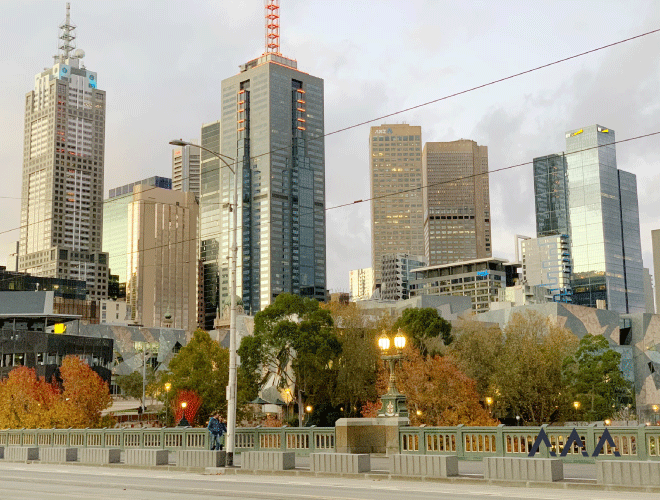18th June 2020 | Grants

Who is Eligible for EMDG?
There are no restrictions on the company structure but one restriction to consider is the company income needs to be less than $50 million in the claiming financial the year.
To be able to claim EMDG:
- you must have spent the funds to seek out, create demand for or develop an export market for your product or service
- you must be the intended principal in export transactions (exemptions apply for manufacturers, Approved Trading House or Approved Body applicants, events promoters, suppliers to inbound tour operators or in situations where a company closely related to the applicant owns the product intended for export)
- the expense must have been paid by you during the financial year (ie, it must be taken up as an expense in your books of account, not just in consolidated accounts or in the accounts of a related entity)
- the item paid for must have been provided to you
- you must have evidence of the expense and of what it was incurred for (invoices, bank statements etc.)
- if you are claiming expenses under the overseas representatives or marketing consultants categories, you must have documentary evidence that shows the role and function of the representative or consultant
- if you are claiming expenses under the marketing visits category you must have trip reports, boarding passes, diary notes and/or other evidence which substantiate the details of the trip
- First grant can combine two years of eligible expenditure to help you reach the $15K threshold and to maximise a 50% return
- You are entitled to 8 grants in total but you don’t need to claim each year as you can drop a year if not much occurred in way of export and pick it up again in later years.
You cannot claim export earnings from Democratic People’s Republic of Korea (DPRK) or New Zealand
What is an Eligible Product or Service?
To qualify for an EMDG grant, your business must have promoted your product for export and your product must be one of the following:
- a good made in Australia
- a good made outside Australia where Australia will derive a significant net benefit from its sale overseas
- a tourism service (including accommodation, passenger transport or tours)
- a conference or event held in Australia
- an intellectual property right that mainly resulted from work done in Australia
- a trademark that was owned, assigned or first used in Australia
- know-how that mainly resulted from work done in Australia
What is an Eligible Activity?
- Overseas Representatives
- all reasonable costs that you pay to have an overseas representative act on your behalf on a long-term basis to market/promote your product
- The portion of the fee or expense paid to your overseas representative that relates to promotion of your Australian products. You cannot claim the costs of non-promotional activities your representative carries out for you such as supplying after-sales service, post-contractual training, sourcing of products, arranging clearance, warehousing or collection of goods, importing or promoting products from other countries
- A maximum of $200,000 per application is claimable under this category. However you should include all eligible expenses that you wish to claim in your application to ensure your grant is maximised
Note: Austrade conducts detailed checks on overseas representative claims and may contact your representative by phone or in person. If you are claiming expenses for overseas representatives, you may be asked to provide additional supporting documentation with your application form.
- Marketing Consultants
- the cost of engaging an arm’s length consultant to undertake export market research or marketing activities
- A maximum of $50,000 per application is claimable under this category. However you should include all eligible expenses that you wish to claim in your application to ensure your grant is maximised
- Marketing Visits
- The cost of travel during the marketing visit e.g. economy and business class airfares, taxi fares, Visa expenses, travel insurance and departure taxes. (only 65 per cent of first class airfares may be claimed)
- An allowance of $350 per day is claimable for overseas marketing visits to help defray accommodation, entertainment and living expenses capped at 21 days per trip.
- Free Samples
- the cost of providing free samples of the product you are promoting for export including postage and freight with a cap of $15,000.00
- Trade fairs, seminars, in-store promotions
- the cost of participating in an international trade fair, seminar, in-store promotion, international forum, private exhibition, or similar activity
- the money it costs to participate, e.g. entry fees, stand rental charges and the cost to freight your promotional materials to the trade fair
- Promotional literature & advertising
- external costs of promotional material, such as brochures, videos, DVDs, advertising and website development
- Overseas Buyers
- the cost of bringing potential buyers who are non-residents to Australia for an approved export promotion purpose
- up to a maximum of $7,500 per buyer per visit
- up to a maximum of $45,000 per application
- Registration and/or insurance of eligible intellectual property
- payments made to third parties, e.g. patent and trademark attorneys, for the grant, registration or extension of the period of registration of intellectual property for countries other than Australia or New Zealand
- The cost of insurance premiums paid for protection against possible infringement, in countries outside Australia, of eligible intellectual property.